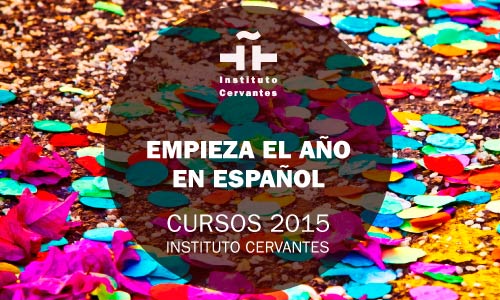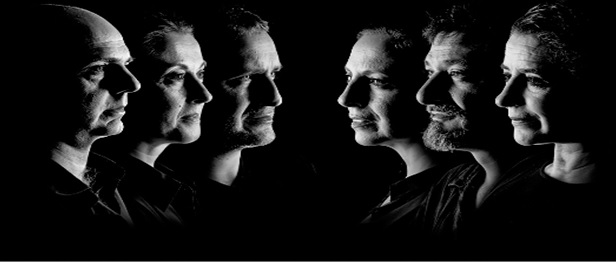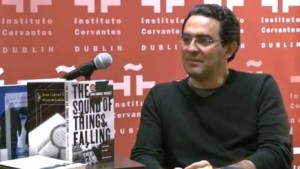Blog del Instituto Cervantes de Dublín
Torre Martello
Prepárate para el año nuevo en español / Get ready for the new year in Spanish
Sol, alegría, buena comida, cultura, deporte, tradición, simpatía y cercanía ¿Necesitas más razones para aprender español? ¿Qué te parecen estas diez razones que te ofrecemos en nuestra página electrónica?
Disfruta de la lengua y de la cultura en español en el Instituto Cervantes. ¡Ya está abierta la matrícula para los cursos de invierno!
Sun, fiesta, good food, culture, sport, tradition, friendliness and cordiality. Do you need any further reasons to learn Spanish? How about these ten you can find out on our website?
Enjoy language and culture in Spanish at the Instituto Cervantes. Enrolment is now open for our winter courses!
Cine en blanco y negro / Black and White Cinema Series
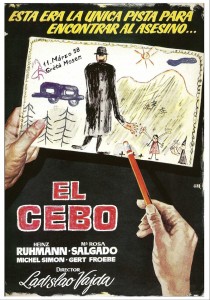 El suspense, el cine negro, el melodrama y la comedia son los géneros seleccionados para nuestro nuevo ciclo de cine. Un ciclo en el que podremos apreciar la contribución de algunos de los más brillantes directores del cine español de los cincuenta.
El suspense, el cine negro, el melodrama y la comedia son los géneros seleccionados para nuestro nuevo ciclo de cine. Un ciclo en el que podremos apreciar la contribución de algunos de los más brillantes directores del cine español de los cincuenta.
Cine en blanco y negro ofrece una nueva aproximación a un cine que, a través de diferentes géneros, consigue reflejar el tiempo y la sociedad en la que se rodaron estas películas. El ciclo incluye dos obras de sendos directores europeos afincados en España: el húngaro Ladislao Vajda, que trabajó de manera fecunda por toda Europa, y el italiano Marco Ferreri. También incluye obras de Manuel Mur Oti, Julio Coll y Fernando Fernán-Gómez.
Estos cinco directores fueron seleccionados para mostrar las nuevas formas narrativas y los nuevos temas surgidos en el cine español de esos años. La década de los 50 fue un período de cambio en el cine europeo que lo llevó a convertirse en el séptimo arte y en un verdadero refugio cultural después de la Segunda Guerra Mundial. El cine español, aunque controlado por el estado, tomó entonces la inspiración de los modelos europeos y americanos y vivió también su propia renovación.
El cebo abre este ciclo con una película de suspense que tiene como protagonista a un asesino en serie, una adaptación de la novela del autor suizo Friedrich Dürrenmatt. La película de Vajda guarda semejanzas con M, el Vampiro de Düsseldorf, dirigida por Fritz Lang. Las películas del director húngaro heredan su narrativa, su atmósfera y la estética del director expresionista alemán.
Cielo negro, de Manuel Mur Oti, nos presenta a una protagonista con una vida arruinada por la desgracia. Mur Oti es un director ambicioso en sus temas, si bien siempre se mueve dentro de las normas del melodrama.
Distrito quinto es una película de suspense basada en una obra de teatro de Josep Mª Espinás. Este clásico, inspirado por la novela negra y la realidad del crimen organizado en la ciudad de Barcelona, alcanza un ritmo más que estimable y resulta muy efectivo formalmente.
Por su parte, El pisito de Marco Ferreri y La vida por delante, de Fernando Fernán-Gómez son comedias que apuntan directamente a las incertidumbres de una juventud que vive tiempos difíciles. Las dos triunfan utilizando, sin embargo, tonos muy diferentes. El Pisito dibuja una sociedad gris a través de elementos casi subversivos, mientras que La vida por delante es una inteligente comedia de costumbres que sugiere mucho más de lo que esperamos normalmente de una comedia ligera.
Cine en blanco y negro para tiempos más bien grises. No pierdas este ciclo que consigue hacer llegar hasta nuestros días el complicado clima social y las penurias de su tiempo.
¿Cuándo?
- El cebo, miércoles 26 de noviembre.
- Cielo negro, jueves 27 de noviembre.
- Distrito quinto, miércoles 3 de diciembre.
- El pisito, miércoles 10 de diciembre.
- La vida por delante, miércoles 17 de diciembre.
Nota de prensa: Miriam Abuin (prendub@cervantes.es)
Thriller, crime, melodrama and comedy of manners are the genres selected for this cinema series, in which we can appreciate the contribution of directors setting the foundations of a new cinema in Spain in the fifties.
Cinema in Black & White offers a darker approach and a new vision of these genres to reflect the times in which these productions are created and consumed. This series includes the works of two European directors who settled in Spain: Hungarian Ladislao Vajda, who worked extensively all over Europe and Italian director Marco Ferreri. It also includes productions by Manuel Mur Oti, Julio Coll and Fernando Fernán-Gómez.
The Directors and films were chosen to showcase the innovation in the narratives and themes in the Spanish cinema of that time. The fifties was a period for change in European cinema, for co-productions and for different audiences to approach the seventh art that became a cultural shelter after WW2. Spanish cinema, although controlled by the state, takes inspiration from the European and the American models and lives its own renovation.
El cebo opens this series with a thriller about a children’s serial killer, an adaptation of the novel by Swiss author Friedrich Dürrenmatt. Vajda’s film reminds us of Fritz Lang’s M. The Hungarian director’s films inherit the narrative, atmospheric settings and the aesthetic of German expressionism.
Manuel Mur’s Cielo Negro presents one of his heroines whose life is ruined by misfortune. Mur is an ambitious director with his themes -although they are always within the melodrama genre- and very expressive in its cinematography.
Distrito quinto is a thriller based on a theatre play by Josep Mª Espinás. This classic inspired by crime literary works and the reality of the organised crime of the city of Barcelona, achieves a more than adequate pace and it’s very effective formally.
El pisito (Ferreri) and La vida por delante, (Fernán-Gómez) both address the uncertainties youth confronts in difficult times. They both succeed using very different tones: El Pisito paints a society through subversive elements and La vida por delante is an intelligent comedy of manners that suggests a lot more than is expected from this light genre.
Darker cinema for darker times; do not miss a series of productions which managed to communicate the complicated social climate and constraints of their time.
Screenings:
- El cebo, Wednesday 26th November
- Cielo negro, Thursday 27th November
- Distrito quinto, Wednesday 3rd December
- El pisito, Wednesday 10th December
- La vida por delante, Wednesday 17th December
Press release by: Miriam Abuin (prendub@cervantes.es)
La voz de nuestros clásicos / The Voice of Our Classics
Este próximo sábado disfrutaremos de algunas de las mejores obras del teatro clásico del Siglo de Oro español de la mano de la Compañía Nacional de Teatro Clásico.
Los actores de la compañía realizarán una lectura dramatizada en la que recorrerán tres obras clave del repertorio español: La vida es sueño y El alcalde de Zalamea, de Calderón de la Barca, y El perro del hortelano, del revolucionario creador de la llamada «comedia nueva», Lope de Vega.
El público tendrá así la oportunidad de apreciar estas obras maestras en una representación única y en exclusiva para nuestro instituto en Dublín. Una representación que combina creación artística y propuesta educativa, con el objetivo de dar a conocer mejor nuestro teatro clásico. La dirección corre a cargo de Helena Pimenta y la música nos llega de la mano de Juan Carlos de Mulder. La calidad y el éxito están garantizados.
¿Dónde? En el Instituto Cervantes de Dublín, Lincoln House, Lincoln Place, Dublin 2
¿Cuándo? El 25 de octubre.
¿A qué hora? A las 6:30
Entrada libre.
En español.
Texto: Miriam Abuin (prendub@cervantes.es)
This Saturday, Instituto Cervantes offers you the opportunity to experience some of the finest classical theatre plays from the Spanish Golden Age. In conjunction with CNTC (the National Company of Classical Theatre, as per its initials in Spanish) we are proud to present this programme which showcases three significant works in the form of dramatic reading performed by some of the most gifted contemporary actors in Spain.
The three works are Life is a Dream and The Mayor of Zalamea by Calderón de la Barca, and The Dog in the Manger by the revolutionary creator of the “new comedy” Lope de Vega.
The audience will have the chance to enjoy these masterpieces in a unique performance that will combine artistic creation with educating in the appreciation of classical theatre. Each performance will feature a musical backdrop by Juan Carlos de Mulder.
Location: Instituto Cervantes, Lincoln House, Lincoln Place, Dublin 2
Date: 25th October
Time: 6.30pm
Free Admission
Languages: Spanish
Text by: Miriam Abuin (prendub@cervantes.es)
Espacio femenino / Female Voices in Spanish Cinema
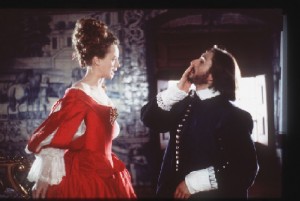 Abrimos hoy en nuestro instituto el ciclo de cine dedicado a obras fundamentales de la cinematografía española realizado por mujeres.
Abrimos hoy en nuestro instituto el ciclo de cine dedicado a obras fundamentales de la cinematografía española realizado por mujeres.
Este ciclo comienza con El perro del hortelano (The Dog in the Manger, dirigida por Pilar Miró en 1996), una maravillosa adaptación de la obra de Lope de Vega que fue además la última película realizada por esta directora.
El perro del hortelano recibió numerosos premios y fue muy bien recibida tanto por la crítica como por el público en general. Toda la película, en la que Emma Suárez y Carmelo Gómez nos ofrecen unas soberbias actuaciones, llenas de naturalidad y gracia, está recitada en el verso original de esta comedia barroca. Localizaciones como la del Palacio de los Marqueses de Fronteira (en Lisboa, Portugal) y el cuidadoso diseño del vestuario, son otros de sus atractivos.
El ciclo Espacio femenino continuará el miércoles siguiente con la proyección de Te doy mis ojos (2003), de la ya consagrada directora Icíar Bollaín. Te doy mis ojos es uno de los títulos fundamentales del cine español reciente y uno de los primeros en afrontar el delicado tema de la violencia doméstica. La fuerza con que la historia que se nos cuenta nos atrapa se debe, en buena medida, a las magistrales actuaciones de Laia Marull y Luis Tosar, su pareja protagonista.
Por su parte, Héctor, de Gracia Querejeta, nos acerca a la vida privada de sus personajes y a los cambios que experimenta la vida del joven Héctor. Tras la muerte de su madre, se traslada desde una zona acomodada de la ciudad hacia las afueras de Madrid con su tía, quien lo cuidará a partir de ese momento.
También son personajes jóvenes y de clase media alta las chicas protagonistas de Blog, de Elena Trapé, la última de las películas de nuestro ciclo. Trapé nos ofrece un tipo de cine apoyado en actuaciones improvisadas y grabadas con cámara al hombro. Elena Trapé consigue retratar las vidas de estas quinceañeras que necesitan sentirse parte de un grupo sin caer en puntos de vista demagógicos o sensacionalistas. Como todas las otras películas del ciclo, altamente recomendable.
¿Dónde? Instituto Cervantes, Lincoln House, Lincoln Place, Dublin 2
¿Cuándo? 15, 22, 30 de octubre, y 6 de noviembre
¿A qué hora? A las 6 de la tarde
Entrada libre
En español con subtítulos en inglés
Texto del artículo: Miriam Abuin (prensa.dublin@cervantes.es)
Instituto Cervantes continues the cinema season with the essential works of female Spanish directors. The series starts with El perro del hortelano (The Dog in the Manger, Pilar Miró, 1996), a wonderful adaptation and the last movie by Miró.
El perro del hortelano gathered numerous awards and the acclaim of critics and public at its release. It is a remarkable adaptation of Lope de Vega’s comedy, brought to screen in verse. Miró’s movie is part of Spain’s recent classics in which Emma Suárez and Carmelo Gómez delivered extremely natural performances in spite of working with a very faithful script to the original text of this Baroque comedy. Locations such as the Palace of the Marquesses of Fronteira (Lisbon, Portugal) and the exquisite costume design would delight the audience.
Female Space will continue with the drama Te doy mis ojos (2003) by renowned director Iciar Bollaín. Bollaín’s work is an indispensable title of recent Spanish cinema, and one of the first movies to address the delicate matter of domestic violence. The impact of the story owes also a big deal of credit to the performances of Laia Marull and Luis Tosar (Cell 211, 2009) as the protagonist couple.
Gracia Querejeta’s Héctor looks into the private lives of its characters but also shows the scenery change for young Héctor. After his mum’s death, he moves from an accommodated setting to a blue-collar suburb in Madrid with his aunt, who offers to take care of him.
Young characters and upper-middle-class girls are the motor of Elena Trapé’s Blog. Trapé’s title, based in the Gloucester teen pregnancy controversy, offers a type of cinema supported by improvised performances and shoulder-held camera filming. Trapé portraits the lives of teenage girls with the need to feel part of a group without falling in a sensationalist view of the story.
Location: Instituto Cervantes, Lincoln House, Lincoln Place, Dublin 2
Date: 15th, 22nd, 30th October and 6th November
Time: 6pm
Free Admission
Languages: Spanish with English subtitles
Text writen by Miriam Abuin (prensa.dublin@cervantes.es)
Fin de curso, tiempo de hacer balance / Last day before holidays: A good occasion for reflection
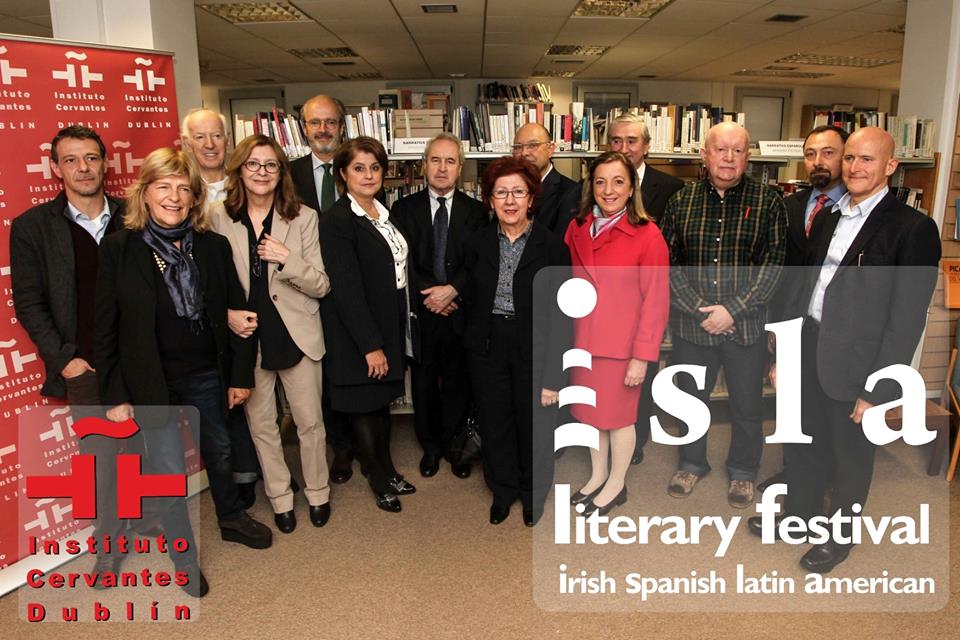
Presentación Festival isla 2013. Foto: Roberto García
Termina el curso en el Instituto Cervantes de Dublín con un buen número de alumnos en los cursos generales, en los cursos especiales de conversación y de preparación para la selectividad, y en los cursos para niños y adolescentes.
Los cursos de formación de profesores de español como lengua extranjera se han duplicado y continúa en aumento el número de licencias de los cursos AVE en las universidades (Dublin City University, Dublin Institute of Technology, University College Cork, Institute of Technology Sligo y National University of Ireland en Galway). Del mismo modo, nuestro centro ha aumentado la oferta de diplomas DELE, con los niveles A1 y B1 Escolar, y las nuevas convocatorias de abril y mayo.
Nuestra biblioteca, la Biblioteca Dámaso Alonso, ha centrado sus esfuerzos en la difusión de sus recursos digitales y se mantiene en los primeros puestos de la red en número de descargas de audiolibros y de utilización de recursos electrónicos.
Su apoyo a la actividad cultural ha sido fundamental para la celebración del Festival Isla de Literatura 2013. Por otro lado, también fue la biblioteca la encargada de editar y publicar nuestro segundo libro electrónico bilingüe, dentro de la serie Biblioteca Literaria, un libro con entrevistas a dieciséis de los autores que participaron en la actividad cultural del centro.
Un año más, la biblioteca ha gestionado las redes sociales de nuestro centro. A través de Facebook llegamos ya a más de de 3500 seguidores (1300 más que en 2013), mientras que nuestros amigos en Twitter son casi 1800, frente al millar registrado en 2013. Y nuestro canal de vídeo, con más de 150 entrevistas editadas y subtituladas en inglés y español, ha alcanzado las 72000 reproducciones (más de 30000 durante este último año).
La actividad cultural del centro de Dublín sigue siendo un referente para la difusión de la cultura en español en Irlanda y un motivo de encuentro entre ambas culturas. Dentro del ámbito literario, cabe destacar el éxito de la segunda edición del ya mencionado Festival Isla de Literatura (Irish, Spanish and Latin American Festival of Literature). Nuestro festival reunió a 16 escritores de España, Irlanda, Argentina, Cuba, Chile y México durante tres días de mesas redondas, lecturas y otras actividades paralelas. La inauguración de esta segunda edición, corrió a cargo de John Banville, Premio Príncipe de Asturias de las Letras 2014.
Como miembros de EUNIC, el Instituto Cervantes de Dublín participó en la celebración de la Noche de la Literatura Europea. Joe Duffy, una de las personalidades radiofónicas más reconocidas de Irlanda, leyó textos de José Ovejero, Premio Alfaguara 2013.
Por otro lado, en colaboración con University College Dublin, el 23 de abril celebramos el Día Mundial del Libro y del Derecho de Autor rindiendo tributo a Miguel de Cervantes. Los alumnos de UCD representaron tres de sus entremeses en nuestro Café Literario.
La relación del Instituto Cervantes de Dublín con las embajadas hispanoamericanas se ha traducido en un programa muy completo y continuado de colaboración. La sala de exposiciones sigue siendo un lugar de encuentro abierto al diálogo entre disciplinas y culturas. Prueba de ello son las diferentes exposiciones que se han programado en los últimos doce meses. La «I Muestra de arte chileno contemporáneo», comisariada por el Cónsul de Chile en Irlanda, Cristian Oschilewski, expuso 12 obras bidimensionales. «En un mundo sin rostro. Pinturas y esculturas» nos presentó las últimas creaciones de la artista española Amalia Bozal y se convirtió en la exposición más visitada del año. Por su parte, dos fotógrafos españoles ya consagrados, Leopoldo Pomés y Carlos Saura, mostraron su particular y amplia visión del retrato dentro del festival PhotoIreland.
En el ámbito de la música, después de casi diez meses desde su creación, el público de esta ciudad ha podido disfrutar del primer concierto ofrecido por el Coro del Instituto Cervantes de Dublín.
Finalmente, cabe destacar el esfuerzo realizado para introducir, dentro de las actividades regulares del centro, talleres de muy diversa temática, dirigidos tanto a niños como a adultos, que complementan nuestra actividad cultural y académica. Igualmente para los más pequeños, y también como complemento a sus clases de lengua, se han programado cuentacuentos y películas especialmente dirigidas a ellos y a sus familias.
Esperamos seguir trabajando con toda nuestra ilusión, para todos vosotros, a partir de septiembre. ¡Feliz verano a todos!
Rosa León
Directora
Instituto Cervantes de Dublín
We are now finishing the academic year 2013-2014 and, before closing our Instituto for holidays in August, we think it’s a good occasion for reflection on what we have done and what still remains for us to do.
During the year, we had a good number of students in our general and special courses for adults, young adults and children. Our training courses for teachers of Spanish as a Foreign Language have doubled and the number of licenses of our online courses (AVE) continues to increase in Irish universities (Dublin City University, Dublin Institute of Technology, University College Cork, Sligo Institute of Technology and National University of Ireland in Galway). Similarly, our Instituto has increased the range of DELE diplomas.
Our library has focused its efforts in promoting the new online resources in our e-library. The Dámaso Alonso Library remains in the top of our network of libraries in number of downloads of audiobooks and use of electronic resources.
Its support to our cultural programme has been central to the celebration of the Isla Festival of Literature. Moreover, the library was also responsible for editing and publishing our second bilingual e-book: Biblioteca Literaria 2014, a book with interviews to sixteen of the writers who participated in our cultural activities.
The library managed our social media as well. Through our Facebook page, we are constantly in contact with more than 3500 friends (1300 more than in 2013), while our followers on Twitter are almost 1800, compared to nearly thousand registered in 2013. And our video channel in Youtube, with over 150 interviews edited and subtitled in English and Spanish, has reached 72000 views (over 30,000 during the last 12 months).
The cultural activities programme of the Instituto Cervantes in Dublin is a benchmark for the dissemination of Spanish culture in Ireland. In the literary field, we highlight the success of the second edition of the aforementioned Isla Festival of Literature that brought together 16 writers from Spain, Ireland, Argentina, Cuba, Chile and Mexico for three days of panel discussions, readings and other activities. John Banville, Prince of Asturias Award for Literature 2014, opened this second edition.
As members of EUNIC, Instituto Cervantes Dublin participated in the celebration of the Night of the European Literature. Joe Duffy, one of the most recognized radio journalists in Ireland, read texts by José Ovejero, winner of the Alfaguara Award 2013.
Furthermore, in collaboration with University College Dublin, on April 23rd we celebrated World Book and Copyright Day paying tribute to Miguel de Cervantes. UCD students represented three of its plays in our Café Literario.
Instituto Cervantes Dublin collaboration with the Latin American embassies in Ireland has resulted in a comprehensive programme of cultural events. Our exhibition hall is a meeting place open to dialogue across disciplines and cultures. Proof of this are the different exhibits that have been scheduled in the last twelve months. The First Chilean Contemporary Art Exhibition, curated by Chilean Consul in Ireland, Cristian Oschilewski, brought to us 12 two-dimensional works of art. In a Faceless World. Paintings and Sculptures introduced us the latest creations of the Spanish artist Amalia Bozal and became the most visited exhibition of the year. Meanwhile, two well known Spanish photographers, Leopoldo Pomés and Carlos Saura, showed his particular vision of portrait within the PhotoIreland Festival.
In the field of music, after almost ten months since its inception, Dubliners had the opportunity to enjoy the first concert by the Choir of the Instituto Cervantes in Dublin,
Finally, we made a great effort to introduce, within our regular activities, workshops about different topics, aimed at both children and adults. And again for the youngest, as a complement to their language classes, we scheduled storytelling and films for them to enjoy with their families.
We look forward to see you all again in September. Have a very happy summer!
Rosa León
Director
Instituto Cervantes in Dublin
Juan Gabriel Vásquez, Premio IMPAC 2014. ¡Felicidades! / Congratulations!
Juan Gabriel Vásquez: Write Only if You Think That you will Be Unhappy Otherwise
Interview with Juan Gabriel Vásquez on the 14th November 2012, at the Dámaso Alonso Library of the Instituto Cervantes in Dublin, in association with his participation in the launch of his lastest novel, The Sound of Things Falling.
Juan Gabriel Vásquez (Bogotá, 1973) is the author of a collection of stories, Los amantes de Todos los Santos, and the novels Los informantes (The Informers, Riverhead Books, 2009) and Historia secreta de Costaguana (The Secret History of Costaguana, Riverhead Books, 2011). He has also published a collection of literary essays, El arte de la distorsión (which include an essay that won the Simón Bolívar Award in 2007), and a brief biography of Joseph Conrad, El hombre de ninguna parte. He has translated works by John Hersey, John Dos Passos, Victor Hugo and E. M. Forster, amongst others, and is a columnist for the Colombian newspaper El Espectador. His books have been published in fourteen languages and thirty countries. His third novel, El ruido de las cosas al caer, (The Sound of Things Falling, Bloomsbury, 2012) won the Alfaguara Award in 2011.
Sergio Angulo: —Juan Gabriel, The Sound of Things Falling is your latest novel, tell us about it.
Juan Gabriel Vásquez: —The novel is the story of this young law professor called Antonio Yammara, who one day meets this mysterious character, a guy called Ricardo Laverde, who evidently has something to hide and is not who he says he is. What begins as this frivolous curiosity, turns into something more serious when this Ricardo Laverde gets killed by a sniper in the street, by a hit-man. The narrator gets hit by a bullet, a straight shot that obviously changes his life. He becomes obsessed with finding out who this guy really was and why he was killed, in order to reach some conclusions about what has happened to him and why his life has changed. So he embarks on this personal investigation, a personal enquiry into the life of a dead man and his past of Colombia. This sends him back to the years in which the drug trade effectively began in Colombia, the early seventies.
We learn that this guy was a pilot and he was not only a witness, but also a participant in the first phase of the drug trade. The novel becomes a sort of exploration of what it means to my generation to grow up surrounded by the drug trade, and particularly, what it means for us to have suffered through the worst years of drug-related violence – of the drug wars in the eighties, when Pablo Escobar basically declared war against the Colombian Government. This is what I have tried to explore.
Sergio Angulo: —The story is not a real case, but it somehow, portrays the reality of this era in Colombia.
Juan Gabriel Vásquez: —It’s a work of fiction, but I tried to explore things that really happened. One of my obsessions has been, not only in this novel, but in my other novels too, how public events shape our private lives. This is one of the things that interests me as a novelist – how things that happened in what we call “history” or “politics” penetrate our lives and affect the way we behave as friends, or as couples, or as parents and children.
One of the reasons behind the writing of this novel was to realise that, in those years, during that period of violence, we had a lot of public information, we had a lot of statistics, a lot of images in the media, (we can even find the video of a presidential candidate in Colombia getting killed) but, at some point, I became anxious at the idea that there wasn’t a place we could go to find out about the effects all of this had had on private or personal lives. In a way, the novelist I wanted to be, is a sort of historian of emotions. I tried to explore the emotional and moral side of those very public events.
Sergio Angulo: —You were living in France for a while and, as far as I know, you are now based in Spain, in Barcelona. Has this distance had any effect on the way you see Colombia now?
Juan Gabriel Vásquez: —It’s very difficult to prove, but I’ve always said that, the only reason I´m able to write about Colombia, is because I have left. My first book was a book of stories about Belgium and France, and people used to ask me, “Why don’t you write about Colombia?” And the reason, to sum it up in a nutshell, is that I felt that, since I didn’t really understand my country, I wasn’t allowed to write about it. But because of the distance, because of the time I spent abroad, and because there was an ocean between my country and me, I ended up realising that, perhaps the fact that I didn’t understand my country was the best reason to write about it. I could use novels as a way of understanding the history of my country and how that has shaped me as an individual.
Sergio Angulo: — Historically, Barcelona is a place where many of the most important Latin American authors have lived. Now we are celebrating the 50th anniversary of the Latin American literary boom. Is this literary boom still happening, or has there been a turning point with new generations taking different paths?
Juan Gabriel Vásquez: —I always considered the writers of the Latin American boom as the real founders of my tradition. The tradition in which I tried to write began with them. Before them, the Latin American novel had maybe produced a couple of isolated things, very interesting things, but isolated. There wasn’t a tradition of Latin American novels to speak of. It all began with Vargas Llosa, García Márquez, Carlos Fuentes and Julio Cortázar. So, in a way, they’re quite present for me, in the sense that they are all still living. Vargas Llosa and García Márquez are still living. Vargas Llosa is still writing. But, at the same time, they are classics. They are living classics, and for me, having them sharing the same world, is almost as if a 21st Century Irish writer could pick up the phone and call James Joyce. It’s a very strange situation, and a very profitable one. I don’t feel in any way threatened by their presence, as many writers do. I feel there is a very big legacy that has opened doors for the people who have come after them.
Sergio Angulo: —Living in Europe, is our perception of Latin America accurate?
Juan Gabriel Vásquez: —There is always a certain degree of inacuracy. But it works both ways. The media have an extraordinary ability to distort the image of a country, sometimes through no fault of their own, because time in the media is limited, resources in the media are limited… But one of the nice things that novels do is, in a way, fight against cliché, against stereotypes, so perhaps we, as readers, get a much better understanding about the complexity of the United States, when we read Philip Roth. Maybe an Irish reader, or a British reader, will get a better understanding about Colombia and the complexity of life there, the contradictions, the unpredictability of life in Colombia, when they read a novel such as this one. In any case, that’s what I would like to see happening.
Sergio Angulo: —You are very young, but you are already at the peak of the literary world. How is the view when looking down?
Juan Gabriel Vásquez: —In reality, I’m looking towards the next book, and wondering how difficult it will be to write it, because one of the cruel things of this trade is that every book is more difficult than the last one, in the sense that you know more things, you’re more conscious of the pitfalls and the problems, and the difficulties of writing. You don’t want to repeat yourself. I’m one of those writers who wants to change with every book. You always get deeper and deeper into this arrogant mindset that you can write a book like the books you love. And I think that’s what you constantly strive to do. You never get to do it, of course, because it’s impossible to write a book like those books that made me want to become a writer. But I think in the attempt to accomplish this, you might give the reader a couple of nice pages, and that’s probably enough.
Sergio Angulo: —Finally, any advice for a young writer who is at the bottom of the hill, getting his book and his backpack ready to start climbing the mountain?
Juan Gabriel Vásquez: —Well, I always give the same piece of advice, which is very simple but very honest, and I think it’s very useful, – Write only if you feel it’s absolutely necessary. The writing life is a very difficult life to live. You have to sacrifice friends, you have to sacrifice time with your family, so write only if you think that you will be unhappy if you don’t do it. Forget about the money, the reviews… they don’t matter. Write only if you know that your only reward will be the satisfaction of a job well done.
Recommended links
- [Video] Interview with Juan Gabriel Vásquez at the Instituto Cervantes in Dublin by Sergio Angulo.
- Juan Gabriel Vásquez in El Espectador.
- Juan Gabriel Vásquez in Alfaguara.
John Banville, Premio Príncipe de Asturias de las Letras / Prince of Asturias Award for Literature
Transcripción de la entrevista / Interview’s transcription
David Smith: Good afternoon, continuing our interviews for the Isla Festival here, in the Cervantes Institute we are with the acclaimed Irish novelist and critic John Banville. John, you are very welcome here to the institute this afternoon
John Banville: Thank you
David Smith: You opened the Festival yesterday you gave a wonderful speech one of the images that you invoked in the speech is a memory that you had your first visit, to Spain. A man on a horse, such a clear Quixotic reference, such a clear Cervantes reference.
John Banville: Cliché is the word that you are looking for.
David Smith: I did like that you mentioned that you didn’t know whether it was a black horse with a white background, or vice versa..How do you see the image of Don Quijote as it travels through…
John Banville: Sancho Panza is my hero, I don’t care much for Don Quijote. Sancho Panza is wonderful. I mean he is every man, he is every man trailing behind a mad dreamer, you know. The world is full of us. And of course it´s, you know, it really is the first novel, I suppose. You could go back to Latin
times but I think Quijote is the first great work of fiction in certainly in the modern era.
David Smith: Joyce says,whimsically that it’s the first book that´s a little bit about itself.
John Banville:Yes that’s true I hadn’t heard that but yes that is true it is self-conscious, it is aware it is self-referential. I suppose it’s more modern than it seems in that aspect.
David Smith: Do you see it as a book that will continuously submit itself to the prevailing literary theories?
John Banville: Well I mean, I don’t know. When I was young I was a great one for theory but the older one gets the more theories fall away. You know, the academies must be supplied, they must keep working… Comparative literature… but the thing about Cervantes is that you know, it’s great popular
literature. Now, Nabokoff hated Don Quijote, he said, you know, only people who find people being sick in each others faces will find this book funny and to a certain extent I agree with him. There´s a raucousness about it that I’m not quite convinced by… So here I am in the Cervantes Institute criticizing Cervantes. Typical!
David Smith: As Don Quixote would do himself. And your prose, interesting that you mention Nabokoff here compares to that confessional narrative famous of Vladimir Nábokoff. Your prose which has this extremely rich poetic element, one of the elements that was discussed yesterday in the roundtable
the boundaries between poetry and prose to see those two territories as territories that cross over?
John Banville: Well my old friend John McGahern used to make a nice distinction. He said that ”There’s
verse, and there’s prose and then there’s poetry.” And poetry can happen in either medium. And I agree with him. One has to be very careful. Irish writers are in love with language, we roll in it like a pig rolling in mud. You know, flinging it in the air. So we have to be careful, we have to apply self-discipline. But I do try to make my books as demanding as a poem. W.H. Auden said that ”The poem is the only work of art that you either take or leave.” You know you look at a picture and your mind can wander to think what you going to have for dinner, you can listen to a symphony and think about your girlfriend or something but a poem you either read it or you don’t. And I try to make my prose the same level of density and I want to make it as demanding as poetry This puts a lot of people off by the way.
David Smith: Interesting. And Octavio Paz, by the way, the great Mexican poet has a very clear distinction
he says ”Poetry inspires,” It’s beautiful in Spanish, this is a shoddy translation that I’m doing. He says that ”Prose aspires to say something whereas poetry aspires to be something.”
John Banville: Yes, well I won’t try to blur that distinction my books you know, you don’t read them for the plot. If you do you’ll be greatly disappointed. You don’t read into the characters you
don’t read them for dialogue, there’s very little dialogue. You read them for something else, you read them for an intensification. I see my book says, like all works of art, as quickening the sense of life, the sense of being alive giving you an intensified sense of what it is to be human that’s when I aspire to do and I see no distinction between prose and poetry and that aspiration.
David Smith: When I heard I had this opportunity, I went digging through old books of yours that I haven’t read in years. I have underlined one line in particular that always struckme as a difficult line, from ‘Shroud’ ”I used piously to hope that they would not have suffered” He’s talking about his mother and his father ”But since then I’ve learnt about hope.”That always affected me, I always wonder whether that was a difficult line for you to write? Do you find yourself-ah?
John Banville: Oh, no I’m not involved in ita I’m not there it’s it’s entirely impersonal. The notion that writing is self-expression is a false notion. And when I stand up from my desk and I
finish my day’s work the person who did the writing ceases to exist. This is why when I meet admirers of my work at readings, they always see this, you know you can always see this disappointment only in their eyes I want to say to them the point is, you like the books, but I have nothing to do with the books. The person you are talking to has nothing to do with it. He sits at the desk and does the work. But when he stops he ceases to exist. This is a difficult concept because people imagine, especially people who aspire to be writers that they are themselves going to have an intensified sense of being alive. It doesn’t work that way. My writing doesn’t work for me.
David Smith: Have you done this through discipline or is that idea, not one John Banville but a multiplicity…
John Banville: Oh I think any any artist would have the same sense of disembodiment and Elliott himself said you know that ‘The man who suffers is not the artist to create immense suffering,’ in the general sense of course, being Elliot it’s got to be suffering but you know, I firmly believe that that’s something else happens. Time becomes strange when you’re working. I always give the example I was writing
one day years ago, my wife put her head in the door of my study and said ‘I’m going to the shops’ a moment later she put her head in again, I said ‘I thought you were going to the shops? She had been to the shops! And I had no sense that of that time that space having past, there’s nothing on the page even,So where was I in that period? And that’s the point of the kind of prose that I write, it’s extreme concentration. I concentrate. You know, mornings will pass by and I won’t write anything, I’mjust sitting there,you know, and I sink deeper and deeper and deeper into myself Or I lose myself- I’m lost in myself so that by three or four in the afternoon, when I’m really working John Banville ceases to exist.There’s somebody
else there doing this. I discover I use words that I don’t even know the meaning of. I’ll look them up and discovered that they’re the right words. And that happens increasingly nowadays My workaday memory is fading because I’m getting old, but my store of words is intact. The day that I can’t drag up a word from that store, I’ll know that I’m finished.
David Smith: Characters in your book seem to be based on real, on historical figures. What obligation to history do you feel as a writer when you create a character?
John Banville: Absolutely none. Zero. Novelists, artists, are cannibals. We will eat our own children to make a line, to make a corner of a painting or to make a piece of music. We are completely ruthless. But then again, as I say the citizen who goes in to my study and sits down ceases to exist, when I start writing. The artist is completely amoral. I have no interest in politics, the person who writes has no interest in politics, society, in morals, family anything except getting this done. It’s a completely ruthless process, and anybody who tell you otherwise is lying, or is a fool.
David Smith: I see you about town, time to time. Dublin. And my friend always comments on ‘John Banville, the great wearer of hats. ‘I wonder..forgive me for asking such a whimsical question. Somebody who’s so involved, who wrangles with notions of identity, notions of consciousness, are you- I love your shoes the way. Are you conscious of style? Do you follow fashion?
John Banville: No, I like shoes, I like hats, I’m human you know but.. No I’m not, I’m not. I mean, look at me, this is hardly fashionable.
David Smith: It’s autumnal.
John Banville: I’m always autumnal. High summer, I’m autumnal. This is my season, this is the season I love, this is when Ireland comes into it’s absolute best. I love the climate here anyway I could’nt live anywhere else. The only city that I’ve ever been in that I thought looked anything like Dublin and in terms of light, is Copenhagen. It has that silvery melancholy light at all times of the year. Very very beautiful.
David Smith: Style in your work, are you conscious of a signature? That certainly the world is
aware of.
John Banville: No. For the most part I don’t know what I’m doing. I work in the darkness. I work in a personal darkness. I don’t know where I’m going or what I’m doing. I work by the sentence. Each sentence makes the next sentence and that sentence makes the next one. And I work on the principle that, if you look after the what is the phrase..If you look after the pennies, the pounds will look after themselves.If you look after the sentence then the book will get done eventually by itself, in some strange mysterious way that I don’t understand. When I was young I was very much, I thought that I was very much in control of everything You know, when I started a book I knew what the last line was going to be.. But as I got older, I allowed instinct to work. And also you know you imagine that with age will come wisdom. It doesn’t. all that comes with age is confusion. But confusion is good state for an artist to be in. Not knowing is better. I was always puzzled by I think that Elliott said, that T.S. Eliot said that the artist, it’s no business of the artist to think. I was always puzzled by this, and I still am to
a certain extent. I do see what he means, that you have to work by instinct, you have to work by passion.
But I am infected with the Bacillus of thinking. Thinking I like books where I can see evidence of a mind at work and I like my own books to be that as well. But it’s very difficult get thought into fiction. Difficult to get thought into art. I discovered that when I was writing my books on Copernicus and Kepler to put actual science into fiction, they just don’t fit together. They really do not fit.
David Smith: In terms of how people describe your work, Do you have a preferred adjective?
John Banville:Oh I don’t know because I don’t read reviews. I don’t read anything about myself so I don’t know what they say.
David Smith: Banvillian.
John Banville: Oh that’s nice, I’ll get into the Oxford Dictionary for you, probably.
David Smith: And my last questions, John, the quote that I took from ‘Shroud’ refers I think to the Nietzschean quote that you introduced the book with. The words themselves and just the words
that Nietzsche chooses in this case is, ‘I do suffer.’ That ´´words in general perhaps are on the horizons of our knowledge but not truths.´´ Is this what drives you, is this tendency towards a horizon? As I say, you get older you perhaps realise that things are more in the dark but that you
tend towards a horizon of meaning.
John Banville: That’s a good question. I strive to get to make my sentences as close to perfection as I can. I will never get perfection, you know, all works of art are failures. By necessity. Because they set
out to be perfect and perfection is not given to us. But that’s about the limit of what I do now, I try to make the sentences as good, and as rich and as poetic and as elusive as I can. And the rest takes care of itself, so. You know, in the early books, especially in the Copernicus and Kepler books, a long time ago. The strive towards knowledge, towards cognition is very evident in those books but since then, my writing career, such as it is, has been a flight from meaning, a flight from thought, a flight from cognition, into something else that I haven’t got a name for. Maybe that’s what I’m trying to do, maybe I’m trying to define what it is I’m trying to define.
David Smith: John thank you very much for joining us this
afternoon, I hope you enjoy the rest of the festival.
John Banville: Thank you.
La guitarra española de la mano de Ángel Lejarza y Salvador Andrades / The Spanish Guitar
El sonido de la guitarra siempre ha estado muy presente en el Instituto Cervantes de Dublín. Buena prueba de ello han sido los conciertos de Salvador Andrades, Alan Grundy, Ángel Lejarza, Juan José Manzano y Damià Timoner, celebrados durante el último año y medio en nuestro Café literario. A ellos se añaden talleres como el que estos días imparte en nuestro centro Lucas González. Y es que en el año en que hemos tenido que decir adiós, de forma inesperada, al gran maestro Paco de Lucía, la guitarra de raíces árabes que en España creció y evolucionó hasta convertirse en el instrumento que hoy todos conocemos, está más viva que nunca.
Así nos lo demuestra Ángel Lejarza durante la entrevista que nos concedió con motivo de su concierto a finales de 2013. En esta entrevista, Ángel hace un rápido recorrido por la historia de este instrumento que es hoy en día el más estudiado y tocado en todo el mundo. Las razones de su éxito son varias, y el propio Ángel las explica en este vídeo que ahora está a vuestra disposición en nuestro canal de Youtube.
Y del repertorio clásico de Ángel Lejarza, pasamos al repertorio flamenco de Salvador Andrades, entrevistado también por nuestra compañera Carmen Sanjulián hace unas semanas. Salvador, otro estupendo guitarrista, alumno de Antonio Sánchez (padre de Paco de Lucía) que ha trabajado junto a artistas como Camarón de la Isla, Fosforito o Tomatito, ha estado con nosotros durante todo este año derrochando simpatía y sabiduría a través de sus talleres y conciertos. Ahora, tras su experiencia irlandesa, vuelve a su tierra andaluza para seguir impartiendo sus clases magistrales y para seguir sacando sonidos nuevos a su guitarra. En la entrevista que ahora que acabamos de editar nos habla precisamente de su paso por Irlanda, de sus proyectos y, por supuesto, de guitarra y de flamenco. ¡Muchas gracias Salvador, y hasta pronto!
The sound of guitar has always been very present at the Instituto Cervantes Dublin. Proof of this were the concerts of Salvador Andrades, Alan Grundy, Ángel Lejarza, Juan Jose Manzano and Damià Timoner, held during the last year and a half in our Café Literario.We also have workshops like the one that musician Lucas González is teaching these days. And in the year that we had to bid farewell, unexpectedly, to the great master Paco de Lucia, the guitar of Arabian roots that in Spain grew and evolved into the instrument that we all now know, is more alive than ever.
Ángel Lejarza proves it during the interview on the occasion of his concert at Instituto Cervantes in late 2013. In this interview, Ángel does a brief tour of the history of this instrument, which is today the most studied and performed worldwide. The reasons for its success are many, and Ángel explains them in this video that is now available to you on our Youtube channel.
And from Ángel Lejarza’s classical repertoire to the flamenco repertoire by Salvador Andrades, also interviewed by our colleague Carmen Sanjulián a few weeks ago. Salvador, another great guitarist, student of Antonio Sánchez (Paco de Lucia’s father) has worked with artists such as Camarón de la Isla, Tomatito or Fosforito. He has been with us throughout this year overflowing sympathy and wisdom in his workshops and concerts.
Now, after his Irish experience, he returns to his hometown to keep teaching his master classes and keep bringing new sounds to his guitar. In the interview that we have just edited, he talks about his experiences in Ireland, his projects, and of course, guitar and flamenco.Thank you very much, Salvador and see you soon!
Concierto de Salvador Andrades en el Cervantes de Dublín / Salvador Andrades in concert
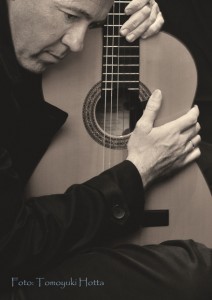 Salvador Andrades, guitarrista gaditano, alumno de Antonio Sánchez, padre de Paco de Lucía, ofrecerá un concierto en nuestro Café Literario el próximo día 18 de noviembre.
Salvador Andrades, guitarrista gaditano, alumno de Antonio Sánchez, padre de Paco de Lucía, ofrecerá un concierto en nuestro Café Literario el próximo día 18 de noviembre.
Salvador ha trabajado junto a artistas como Camarón de la Isla, Fosforito o Tomatito y ha participado como músico en varias películas, entre ellas The mask of Zorro bajo la dirección musical de James Horner.
En este concierto, Salvador Andrades interpretará sus propias composiciones, impregnadas de músicas como el jazz y la bossa nova. ¡Ya puedes comprar tu entrada en reservas.dublin@cervantes.es! Solo cuesta 10 euros.
Salvador Andrades, guitarist from Cadiz, will offer a unique concert in our Café Literario on the 18th November.
Salvador studied guitar with Antonio Sánchez, Paco de Lucia’s father. He has worked with artists such as Camarón de la Isla, Tomatito and Fosforito. As a musician, he has participated in several movies, including The Mask of Zorro, under the musical direction of James Horner.
In this concert, Salvador Andrades will play his own compositions, steeped in music like jazz and bossa nova. Now, you can buy your ticket at reservas.dublin@cervantes.es. It’s only 10 euros!
18/11 a las 7.30pm, Café Literario
Entradas: €10,
reservas.dublin@cervantes.es
Preparando el Festival Isla 2014 / Preparing Isla Festival 2014
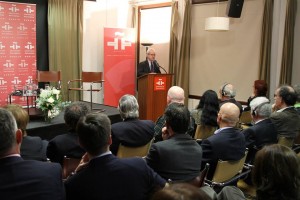 Durante este fin de semana, hemos celebrado la segunda edición del Festival Isla de Literatura. Por segundo año consecutivo, Irlanda, Latinoamérica y España se encontraron en el Instituto Cervantes de Dublín para hablar de la literatura y sus alrededores.
Durante este fin de semana, hemos celebrado la segunda edición del Festival Isla de Literatura. Por segundo año consecutivo, Irlanda, Latinoamérica y España se encontraron en el Instituto Cervantes de Dublín para hablar de la literatura y sus alrededores.
Una vez más, queremos agradecer desde aquí el apoyo y la colaboración de instituciones como Dublin UNESCO City of Literature, Ireland Literature Exchange, el Instituto Vasco Etxepare, Poetry Ireland, y cómo no, a la inestimable aportación de Dublin City University, National University of Ireland in Galway, National University of Ireland in Maynooth. Trinity College Dublin, y University College Cork. Muchísimas gracias a todos ellos.
Como dijera Rosa León, directora del Instituto Cervantes de Dublín durante su discurso de inauguración, «tenía que ser aquí, en esta isla esmeralda, donde naciera y creciera nuestro festival, donde la semilla de nuestro esfuerzo diera sus frutos. En esta misma tierra donde tantos genios de la literatura cavaron antes con su pluma para fecundarla y enriquecerla, para hacerla abierta, acogedora y libre.
Porque la gran riqueza de Irlanda es su cultura y su maravillosa tradición literaria, y esa poderosa fuerza se da la mano aquí, en este festival, con la fuerza del español, con quinientos millones de seres humanos en cuatro continentes, con la segunda lengua de comunicación a nivel internacional».
Rosa León recordó también las hermosas palabras del presidente Michael D. Higgins durante su discurso en 2012 y, como no, tuvo de palabras de cariño y reconocimiento hacia Seamus Heaney, cuya presencia estaba prevista en el festival desde antes del verano. Sus poemas, los mismos que él había elegido para su lectura durante el Festival Isla, se hicieron presentes en la sala gracias a la voz del actor irlandés Tom Hickey.
Finalmente, Rosa León cedió la palabra a otro gran amigo de Seamus y del propio Instituto Cervantes, el gran escritor irlandés John Banville, que «de forma amabilísima y desinteresadamente atendió la llamada del Instituto Cervantes para cubrir la ausencia de Seamus Heaney».
John Banville, en su intervención, recordó la impresión que le había causado, en su primera visita a España, un hombre a caballo en la isla de Mallorca. También recordó su visita a América del Sur para visitar la casa de la madre de Thomas Mann y nos hizo reflexionar, de este modo, sobre la universalidad de la literatura. Muchísimas gracias, John, por tu generosidad.
Esperamos que todos hayais disfrutado del Festival y esperamos también recibir vuestras sugerencias y aportaciones, para mejorar en lo que sea posible en la edición del Festival Isla de 2014 que hoy mismo comenzamos a preparar.
Las fotos del festival están ya disponibles en nuestra página de Facebook.
Los vídeos del Festival estarán muy pronto disponibles en nuestro canal de Youtube.
During last weekend , we celebrated the 2nd Isla Literary Festival . For the second year in a row , Ireland , Latin America and Spain joined at the Instituto Cervantes in Dublin to talk about literature and its surroundings.
Once again , we thank the support and collaboration of institutions such as Dublin UNESCO City of Literature, Ireland Literature Exchange , Instituto Vasco Etxepare, Poetry Ireland, and of course, the invaluable contribution of Dublin City University, National University of Ireland in Galway, National University of Ireland in Maynooth, Trinity College Dublin, and University College Cork. Many thanks to all of them.
As Rosa Leon, director of Instituto Cervantes in Dublin, said during her speech , “our Festival had to be born in here , in the Emeral Isle. On this same land where many geniuses of literature dug with their pens to fertilize and to enrich it , to make it an open land, free and welcoming.
Because the rich of Ireland is its culture and its wonderful literary tradition, and that powerful force joins hands here, in this festival, with the strength of the Spanish language, with half a billion of human beings on four continents , with the second language of international communication.”
Rosa Leon recalled as well the beautiful words of President Michael D. Higgins during his speech in 2012 and she had words of love and gratitude to Seamus Heaney, whose presence was expected at the Festival since before summer . His poems , the same poems he had chosen for reading during the Isla Festival, were present in the official opening thanks to the voice of the Irish actor Tom Hickey.
Finally , Rosa León gave the floor to another great friend of Seamus and Instituto Cervantes , the great Irish writer John Banville , who “so lovable and unselfishly answered our call to cover the absence of Seamus Heaney.”
John Banville recalled the impression that a man riding a horse in Mallorca made on him during his first visit to Spain. He also mentioned his trip to South America, to visit the house of Thomas Mann‘s mother and, in this way, he made us reflect on the universality of literature. Thank you , John , for your generosity .
We hope you all have enjoyed the Festival as much as we did, and we look forward to receiving your suggestions and contributions to improve, as best as we can, the 3rd edition of our Isla Festival that we start preparing today.
The photos of the Isla Festival 2013 are now available on our Facebook page .
The videos of the interviews we prepare will soon be available on our YouTube channel.
Te apuntas al Coro Cervantes? Would you like to join the Cervantes Choir?
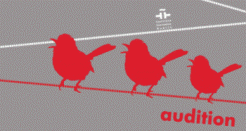 ¿ Te gusta cantar?, ¿conocer gente?, ¿practicar tu español a través de la música? Si tu respuesta es sí a alguna de esas preguntas, el Coro del Instituto Cervantes de Dublín puiede ser tu solución.
¿ Te gusta cantar?, ¿conocer gente?, ¿practicar tu español a través de la música? Si tu respuesta es sí a alguna de esas preguntas, el Coro del Instituto Cervantes de Dublín puiede ser tu solución.
Para formar parte del coro, no necesitas saber solfeo y tampoco es necesario pagar ningún tipo de inscripción. Lo único que necesitas es buen oído y buena disposición.
Para más información sobre su funcionamiento y sobre su director, Borja Zanón, escribenos a reservas.dublin@cervantes.es.
Do you like singing?, meeting people?, would you like to practice your Spanish through music? If your answer is yes to any of these questions, the Cervantes Choir may be a good chance for you.
To join the choir, you do not need to know music theory or to pay any fee. All you need is a good ear and good disposition.
For more information about how Cervantes Choir works and about its director, Borja Zanon, please write to reservas.dublin@cervantes.es.
No solo de mesas vive el Festival Isla de Literatura / It’s not just about round table discussions
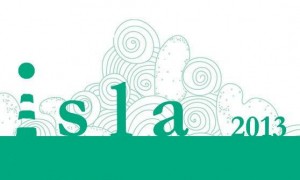 No, en el Festival Isla no solo hay mesas redondas.
No, en el Festival Isla no solo hay mesas redondas.
A lo largo de las últimas semanas hemos estado desgranando en estas páginas los detalles de las mesas redondas que conforman el Festival Isla de Literatura. Pero nuestro festival es mucho más que eso, porque además tendrás la oportunidad de asistir a lecturas en inglés y en español de textos de poesía y narrativa, leídos por sus propios autores, tendrás la posibilidad de comprar sus libros, y tendrás la ocasión de tomarte un café y un tentempié en nuestra sala de exposiciones. Allí mismo podrás encontrarte con los autores que participan en el evento y pedirles que firmen tu ejemplar.
Disfruta de la literatura, en todos los sentidos, en compañía de René Vázquez, Daniel Freidemberg, Tomás Mac Síomóin, Paula Meehan, Kirmen Uribe, Enrique Vila-Matas, John Banville, Eileen Battersby, John Boyne, Julio Espinosa, Álvaro Enrigue, María Tena, Fernando Sánchez Dragó, Marina Carr, Susana Cella y Manuel Gutiérrez Aragón. Estás avisado. ¡Allá tú si te lo pierdes!
No. Isla Festival of Literature is not just about round table discussions.
Over the last few weeks, we have been showing in these pages the details of the round table discussions that will be held during our Festival Isla of Literature. But our festival is much more than that, because you will also have the opportunity to join our readings of poetry and fiction, with texts read by the authors themselves. You will have the occasion to buy their books, and to take a coffee and a snack in our exhibition room. Right there, you can meet the authors participating in the event and ask them to sign your copy.
Enjoy the best literature in the company of René Vázquez, Daniel Freidemberg, Tomás Mac Síomóin, Paula Meehan, Kirmen Uribe, Enrique Vila-Matas, John Banville, Eileen Battersby, John Boyne, Julio Espinosa, Álvaro Enrigue, María Tena, Fernando Sánchez Dragó, Marina Carr, Susana Cella and Manuel Gutiérrez Aragón. You are warned! Don’t miss it!
Audiolibro de la semana: Los ojos del tuareg / Audiobook of the week
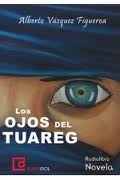
Esta semana te traemos el audiolibro Los ojos del tuareg de Alberto Váquez Figueroa, una novela que es la continuación de su gran éxito literario Tuareg.
Esta obra, inspirada en hechos reales, narra en primera persona el dramatismo de los conflictos provocados por uno de los grandes acontecimientos deportivos y publicitarios del mundo occidental, el famoso rally París-Dakar. Frente al espectáculo televisivo que nosotros conocemos, existe otra cara muy distinta: la destrucción del medio ambiente y la falta de respeto por la vida de los nativos del desierto de África.
La novela nace con una intención de denuncia, y abunda en diálogos en torno al cinismo de una sociedad occidental corrompida por el dinero.
Para descargar este audiolibro solo necesitas tu carnet de biblioteca y pulsar aquí.
This week, we bring you the audiobook Los ojos del tuareg by Alberto Vázquez Figueroa, the second part of his literary success Tuareg.
This novel, inspired by true events and narrated in first person, relates the drama of the conflicts caused by one of the biggest sports events in the world: the París–Dakar rally.
Despite the television show we all know, there is another very different side of this event: the destruction of the environment and the lack of respect for the lifes of the natives of the African desert.
In that sense, Los ojos del tuareg is a report plenty of dialogues about the cynicism of our Western society corrupted by money.
Downloading this audiobook only requires your library card and your password. Los ojos del tuareg is just one click away from you.
Hispanic power / Poder hispano
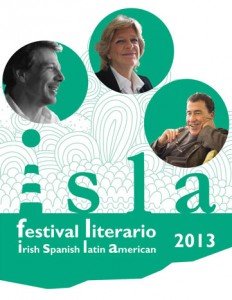 Is there anybody there on the other side of the book? How do readers and writers connect today? Faced with uncertainty, María Tena continues writing and editing, having dedicated her entire life to the world of culture, with eminent roles in this area.
Is there anybody there on the other side of the book? How do readers and writers connect today? Faced with uncertainty, María Tena continues writing and editing, having dedicated her entire life to the world of culture, with eminent roles in this area.
Álvaro Enrigue, literary critic, novelist and Professor of creative writing, hails from the United States, where Hispanic power is becoming increasingly visible. However, is it possible to “create” writers, when it seems like readers tear them apart? How much power does an editor have over the final draft? What about a critic or an agent? Does an author have any power? How powerful are the institutions that set trends?
Fernando Sánchez Dragó, essayist, novelist, anarchist and literary scholar, will also participate in the discussion of these powerful themes.
“Hispanic power” is the title of our fourth round-table discussion in our Isla Literary Festival. Moderated by Catherine Leen.
¿Hay alguien ahí, del otro lado del libro?, ¿dónde se encuentran hoy escritores y lectores? Ante la incertidumbre, María Tena continúa escribiendo y editando tras una vida entera dedicada al mundo de la cultura, con puestos de gran responsabilidad en esta área.
Desde Estados Unidos, donde el «poder hispano» se hace cada vez más visible, llega Álvaro Enrigue, crítico literario, novelista y profesor de literatura creativa. Pero, ¿acaso es posible «hacer escritores» cuando parece que los lectores se «deshacen»? ¿Cuál es el poder del editor sobre la calidad final de la obra?, ¿y de un crítico, de un agente?, ¿tiene algún poder el autor?, ¿cuál es el poder de las instituciones para marcar tendencias?
Sobre estos y otros poderosos temas tendrá también mucho que aportar Fernando Sánchez Dragó, ensayista, novelista, anarquista individualista, sabio de la literatura.
Women and Film-Makers / Mujeres y directoras de cine
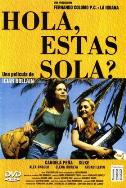
Desde que Pilar Miró dirigiera El crimen de Cuenca en 1979 (un alegato contra la violencia y la tortura del poder), el cine dirigido por mujeres en España ha experimentado un salto adelante.
El éxito de la película fue tal, que poca gente aficionada al cine en el territorio español se quedó sin verla, y Pilar Miró pasó a ser la directora de cine española más conocida de la historia. Junto a ella, las directoras Josefina Molina y Cecilia Bartolomé fueron las tres pioneras del cine de la Transición y se encargaron de pasar el testigo a un número significativo de directoras forjadas en las escuelas de cine.
En la década de los noventa se dejó atrás aquella lenta incorporación de las mujeres españolas a la dirección de cine y se produjo ya un continuo goteo de mujeres al frente de producciones variadas, algunas de calidad indiscutible, con reconocimientos y premios nacionales e internacionales, incorporándose con fuerza y afianzándose en el panorama cinematográfico, como directoras y guionistas.
Since Pilar Miró directed The Crime of Cuenca in 1979 (a plea against violence and torture), the cinema directed by women in Spain has experienced a great leap forward.
The film’s success was such that few movie buff people did not see the film when it was released in Spain and Pilar Miró became the Spanish film director best known ever.
Besides her, the directors Josefina Molina and Cecilia Bartholomew were the three pioneers of cinema during the transition to democracy and they passed the baton to a significant number of directors forged in film schools.
In the nineties, that slow incorporation of Spanish women to film direction was left behind and there was already a steady trickle of women leading all kind of productions, some of unquestionable quality, with strong recognition and national and international awards, getting in the field with notoriety and steadying themselves in the film scene, as directors and screenwriters.
